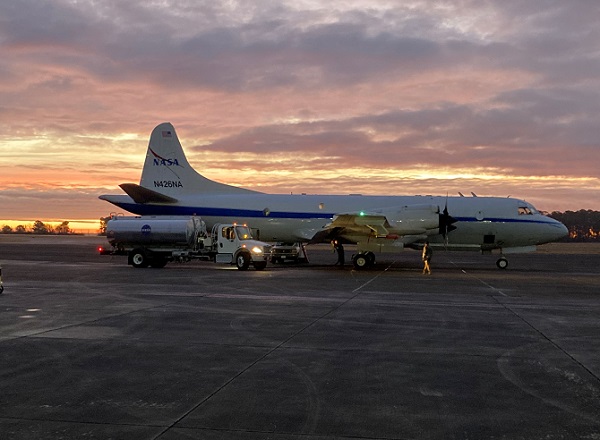BALTIMORE, MD—A NASA aircraft will fly over the Interstate 95 corridor from Washington D.C. to Baltimore and Hampton, Virginia, in support of an atmospheric campaign in the mid-Atlantic region between July 5 and 16, 2022, NASA reported this week.
The four-engine turboprop P-3 aircraft, based at NASA’s Wallops Flight Facility in Virginia, will fly five days during the 12-day period at altitudes from 1,000 to 10,000 feet.
Each flight during the campaign will include one low-level pass at 1,000 feet over I-95, two spiral tracks, ascending and descending, over Baltimore, and one spiral track over Greenbelt, Maryland.
Additional passes during each flight will include a 1,000-foot pass over the Chesapeake Bay and one spiral track over Hampton, Virginia.
The P-3 can be tracked in real-time at NASA Airborne Science Program Tracker. Look for the plane icon labeled NASA P-3 (N426NA). Also, flight updates will be available via the Wallops Facebook and Twitter pages. The day before a flight, Wallops will post the estimated time the P-3 aircraft will fly over the I-95 corridor and Hampton.
The P-3 aircraft will carry instruments collecting atmospheric data over variable surface types such as urban, rural, vegetation and water to support a variety of scientific projects. The flight path was selected to correspond with ground instrumentation and previous NASA science flights. This allows scientists to compare the data with other instruments and time periods.
The flights are part of the Students Airborne Science Activation (SaSa) program coordinated by the NASA Ames Research Center in Moffett Field, California. This summer, the first student participants in the SaSa program will spend eight weeks gaining hands-on experience in all components of a scientific research campaign.
SaSa is on a mission to broaden the ethnic and racial diversity of researchers in the Earth sciences. The program is designed for first- and second-year undergraduates enrolled at Minority-Serving Institutions to participate in an authentic NASA field research campaign. Students from Howard University in Washington; University of Maryland Baltimore County, Coppin State University, and Morgan State University – all three in Baltimore, Maryland; University of Maryland Eastern Shore in Princess Anne, Maryland; and Hampton University in Virginia, are participating the inaugural SaSa class.
To help retain students for careers in the geosciences, SaSa aims to make its participants feel welcome and supported in the field. The program offers multiple kinds of mentoring, discussions of the barriers faced and tools that helped others overcome the challenges to be retained in STEM, professional development, and networking opportunities.
Photo via NASA

